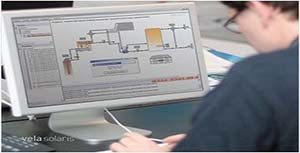Watch this great video on solar water heating systems.
PopularItems
See a solar hot water system in Calgary and Vancouver here.
Image of some Residential and Commercial Solar Water Heating projects.
Buy solar systems for DIY install, prices and technical details can be found here.
See some of our most popular Pre-Engineer Solar Water Heating Packages available for domestic hot water, space heating and pools.



